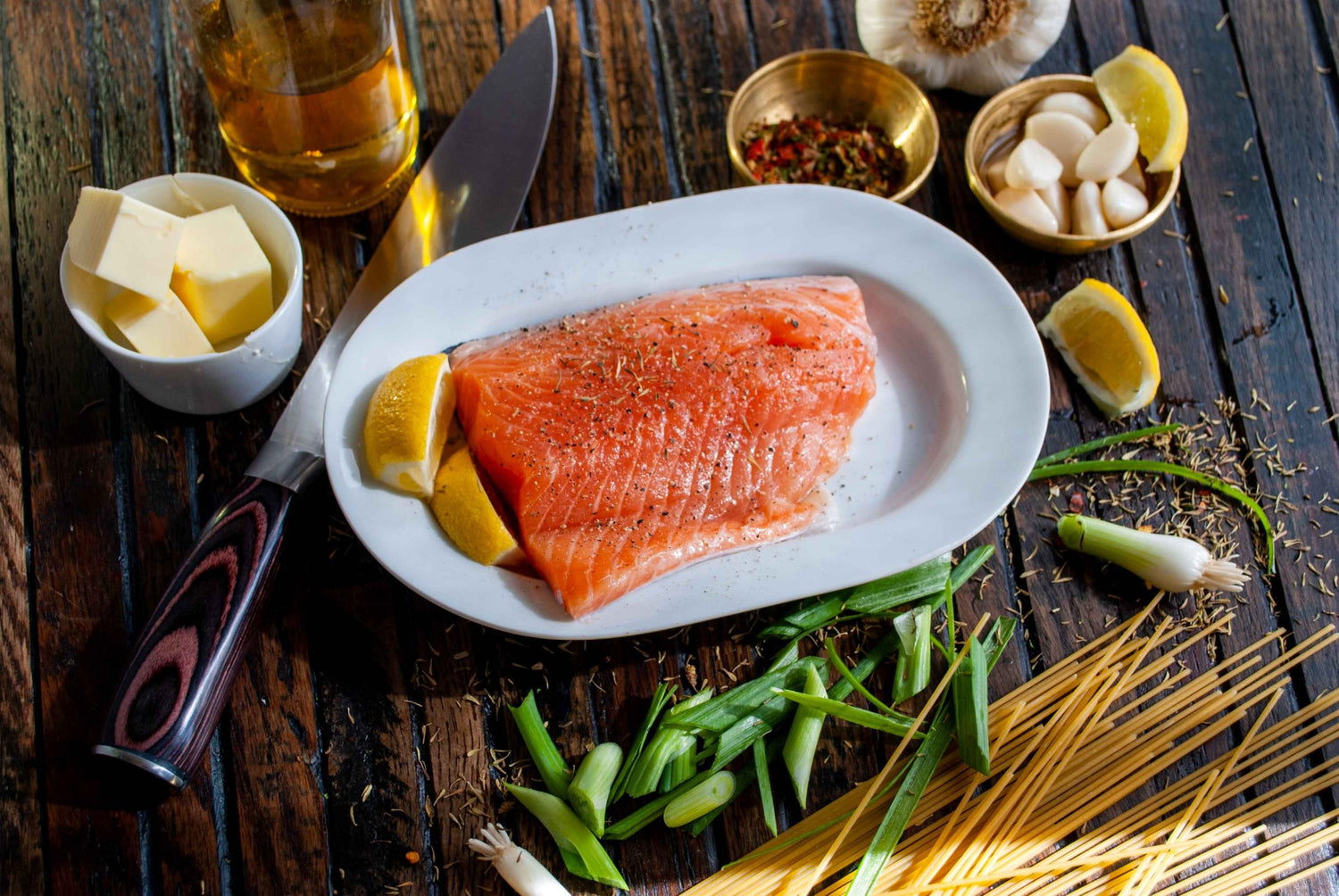Foods to help us feel better
The challenges of eating healthily whilst on lockdown are there - access to food, access to healthy food, access to fresh food, the motivation to make or eat something healthy when we are surrounded by Easter chocolate and the constant desire to snack throughout the day are just some.
But the good news is we can help ourselves feel a little better with what we eat
What can we eat to help our mood ?
Omega 3 rich Fish
This type of fat - omega 3 fat - are seen as healthy fats and have been researched for their ability to help with symptoms of depression.
The thinking is that this form of fat helps with the structure of brain cells (neurons) and that this in turn helps brain cells communicate as well contributing to lowering inflammation and help support our serotonin levels.
2 servings a week is recommended to keep up your omega 3 levels and the fish can be a variety of mackerel, sardines, salmon or herring.
Not a fish fan? Look for foods fortified with Omega 3 DHA or consider supplements
Green Veg
There is no getting away from how good green vegetables are for your brain health.
Maintaining normal levels of vitamin B12 and Folic Acid can help with energy, memory and serotonin
A big study looking at Folate levels ( known as a meta analysis where lots and lots of studies are looked at to be able to review results) showed that people with depression have lower levels of Folate than those without depression.
Folic acid is found in all green veg including Popeye’s favourite spinach, but can also be found in avocados, beans and lentils
Probiotics
Sources of live cultures are very important for balance of bacteria that live in our gut. We want the good guys to outnumber the bad guys in simple terms.
This is important for mental health, gut health and immunity.
Research has looked at probiotics and whether these have a role in reducing negative thoughts* and also depressive symptoms**
Kefir, sauerkraut and live culture containing yoghurts are recommended food sources of live cultures. Just keep an eye on the sugar content of flavoured yogurts as that can undo some of the good work live cultures can do
Vitamin D
Found in Egg yolks, fatty fish and some fortified food and drinks such as milk. And of course sunshine. Research from another meta analysis study- which looked at over 30,000 people-found that low vitamin D levels were associated with depression.***
Supplements are vital in winter months, in countries where there is less sun or if you can’t get out in the sunshine when it is there
Caffeine
Caffeine is a mood booster and when consumed early enough in the day can be a real support to a dip in mood or energy. The key is remembering moderation is important. Too much caffeine can make us more anxious and also affect sleep so make the most of that morning or early afternoon caffeine lift and swap to non caffeine alternatives after that
Dark chocolate
Bursting with anti oxidants, caffeine and with possible benefits to serotonin levels, some dark chocolate is another way to get a little mood boost. And if dark chocolate isn’t your thing then there are still benefits been found with milk chocolate too.
*https://www.sciencedirect.com/science/article/pii/S0889159115000884
**https://annals-general-psychiatry.biomedcentral.com/articles/10.1186/s12991-017-0138-2
***https://www.cambridge.org/core/journals/the-british-journal-of-psychiatry/article/vitamin-d-deficiency-and-depression-in-adults-systematic-review-and-metaanalysis/F4E7DFBE5A7B99C9E6430AF472286860
Dr Clara Russell









